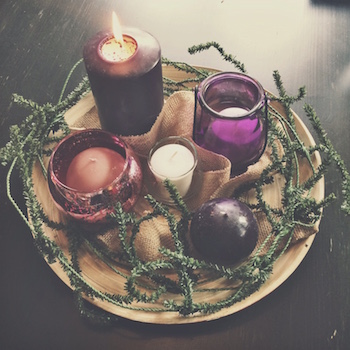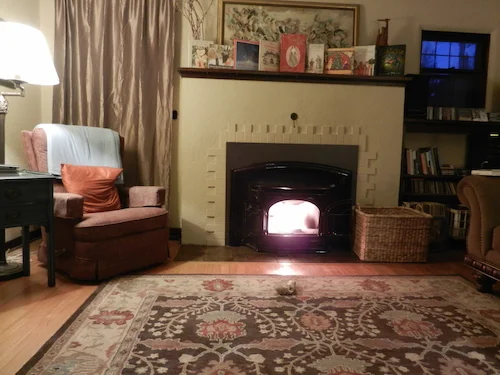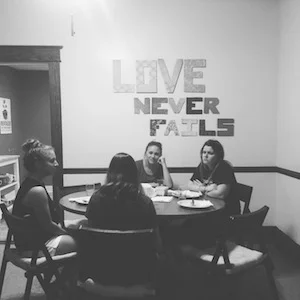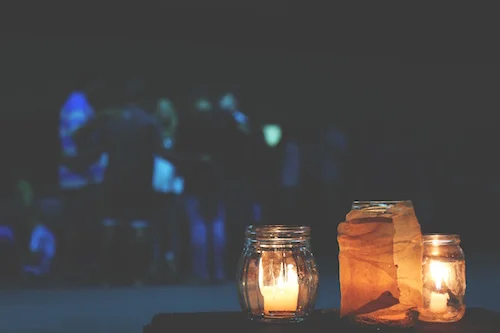Advent: Calling the Dreamers and Realists, Prophets and Pragmatists
Advent, n.
(From the New Oxford American Dictionary)
- The arrival of a notable person, thing, or event.
- The first season of the Christian Church year, leading up to Christmas and including the four preceding Sundays.
- The coming or the second coming of Christ.
Advent is my favorite season of the year. Why? Maybe because it seems like the most realistic one to me, and I think that's a good foundation on which to start each new year—a real one. Advent is the time when longing and unmet desires meet celebration and fulfillment, holding the two ends of the spectrum of our human experience in tension without denying either of them. Grief and hope, pain and joy together. Because honestly, how often are we not feeling both simultaneously in some way?
Advent is a season of waiting, preparation, longing, and celebrating. Amid the chaos that our Americanized, consumeristic "Christmas" can pull us into, we're given an invitation as the community of God's people during Advent to say no to the noise. No to the busyness. No to the stress. No to the spending.
We're invited to say yes to a counter-cultural quiet––silence, even. Yes to slowing down rather than speeding up. Yes to spending less and in different places, so as not to feed the machine of unjust slave labor that our consumer culture breeds. We're invited to prepare to remember in gratitude the first coming of Christ, to acknowledge the longings and struggles for which we need God to come today, and to hope confidently as we wait for the second coming of Christ when all of creation will be restored and made right.

Photograph by Sarah DuetAdvent sets us in the past, present, and future all at once. It sets us in the fullness of time. Something about this helps us with the slowing of our paces, the realization of our smallness, and the wondering at a God who would choose to become human, proving to us that we're not alone, that God is with us and understands, and showing us how to live in love.
Advent is a time to listen to the prophets, to learn their language, and to adopt their eyes. A great Light has shown into the world, yes, but there is much darkness for it still to overcome. And there is much work for us to do in bringing the Light to bear on the places, people, and systems that are still desperately waiting on it. So we read Isaiah, Jeremiah, the Psalms of lament, and the Gospel stories to learn how to see and talk about what is still broken, what is still unjust and wrong––all the while speaking hope and a better way into the people and places that need it. A better way of Love that leads us to hurt ourselves and each other less, and that adds to the beauty rather than the brokenness around us. A better way that helps to make this world a home where every child, every person, every part of Creation can be safe and loved.
We have good news for our own hardened, hurting hearts. For our loneliness. For the light flickering inside of us that we haven't seen or felt in some time. For the children in our neighborhoods who are becoming parents so young. For the victims of hateful, nonsensical violence in Paris, Syria, San Bernardino, and elsewhere around the world today. For those trapped in the sex trade and other slave labor. For the child soldiers. For the adult soldiers. For those misunderstood or discriminated against because of their gender, sexual orientation, religion, race, etc. For those considering suicide. For the deceived. For the betrayed. For the addicted. For the migrants walking the desert into our country today, many dying. For the countries they come from. For our country. For those on both sides of the imbalance of power in our world––both the oppressed and oppressors. For those who feel forgotten, alone, unseen, or unheard. And for countless others, we have the good news of a better way. We really can have peace when we remember that we belong to each other––that we make it together or we don't make it at all.
The songs of Advent give us language to speak this good news of a better way to ourselves and each other. To sing of the beauty and wonder at it, trusting it to be true even if we can't imagine how that could be so at the moment.
We sing:
Oh, come, Desire of nations, bind
In one the hearts of all mankind;
Oh, bid our sad divisions cease,
And be Yourself our King of Peace.
—“O Come, O Come, Emmanuel”
Come, Thou long expected Jesus,
born to set Thy people free;
from our fears and sins release us,
let us find our rest in Thee.
Israel's strength and consolation,
hope of all the earth Thou art;
dear desire of every nation,
joy of every longing heart.
—“Come, Thou Long Expected Jesus”
Truly He taught us to love one another;
His law is love and His Gospel is peace.
Chains shall He break for the slave is our brother,
And in His Name all oppression shall cease.
—“Oh, Holy Night”
And ye, beneath life’s crushing load,
Whose forms are bending low,
Who toil along the climbing way
With painful steps and slow,
Look now! for glad and golden hours
Come swiftly on the wing.
O rest beside the weary road,
And hear the angels sing!
—“It Came Upon the Midnight Clear”
Then pealed the bells more loud and deep:
“God is not dead, nor doth He sleep;
The wrong shall fail, the right prevail
With peace on earth, good will to men.”
—“I Heard the Bells on Christmas Day”
Beauty.
The language of Advent is rich. It is real. It is raw. It is good news for all people. It is our past, our present, and our future. The Story invites us into itself that we would be compelled to participate and to play our part. And it calls for all of us: the dreamers and prophets, realists and pragmatists alike. It is a time to look at the world and at ourselves and be painfully honest about what we see. But we're not to stop there. We're to dream for the world with a holy imagination guided by the Spirit, and to put our hands to making those dreams reality in practical, tangible ways. If we accept the invitations of Advent, the season can be such a centering and generative one.
The ways of Advent are not easy amid a culture set up for such a different way this season. They're not easy, but they are worth it. They are the way of freedom via limitations—saying no in the right places so that we may say yes rightly as well, experiencing the fruit that follows.
So in the name of the One who is Mercy and Mystery––the One who comes with goodwill to earth and peace again for us all––I wish us all a deep sense of hope this Advent. May we, the weary world, remember also to rejoice together this season.
(Find resources, music, liturgy, and more writings about creative ways to respond to the invitations of Advent at sarahduet.com/advent.)
Sarah Duet makes art, makes music, and develops internship curriculum for The Yellow House of Highland, an intentional Christian Community in Shreveport, LA. Sarah's deepest affections fall on her friends and family, her off-kilter cat Nash, coffee, and the pursuit of beauty in all things. Follow her work at sarahduet.com.


















